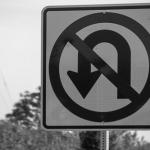This week we are talking about traumatic brain injuries (TBIs) again. If you haven’t reviewed our prior blog articles on the topic, here is Part One and Part Two. Part One discusses the signs and symptoms of a TBI. For a quick review, there are varying levels of TBIs from mild to severe. This article focuses on the different types of TBI assessments, and why your average imaging test may not reveal a TBI.
Diagnosing A TBI
TBIs can be hard to formally diagnose in the first place, and in personal injury lawsuits, they can be very difficult to prove without the proper testing and diagnosis. Even if you or your physician already suspect you may have a TBI, it may be beneficial for you to go through testing to confirm it.
I Already Had A CT Scan. Shouldn’t It Have Shown I Have A TBI?
Typically, no. CT scans (computerized tomography scan) are most commonly used to diagnose acute problems which may be life-threatening and require emergent treatment such as surgery. It can effectively detect bleeding within and surrounding the brain and brain swelling. However, CT scans are much more limited in their ability to detect the widespread microscopic injury to axons (nerve fibers) which leads to many of the long-term problems experienced by TBI patients. It is common for a CT scan to be completely normal in a patient with a TBI, especially in patients that have a mild TBI.
What About An MRI? Doesn’t It Diagnose A TBI?
Again, the answer in most cases is no. An MRI (magnetic resonance imaging) scan can detect signs of injury such as minute bleeding, small areas of bruising or scarring, but because microscopic injury to the brain may be the cause of problems, even an MRI may not be able to detect any abnormality in a patient with a TBI.
A DTI (diffusion tensor imaging) scan is an advanced magnetic resonance imaging technique that is used to evaluate white matter in the brain and may be used to help evaluate TBIs. If you are interested in learning more, click here.
TBI Assessment
A TBI assessment usually involves a neurological exam, which includes an evaluation of a person’s thinking, motor function (movement), sensory function, coordination, and reflexes. An assessment may include:
- Measures an individual’s ability to speak, open eyes, and move.
- A score of 13 and higher indicates a mild TBI, 9 through 12 indicates a moderate TBI, and 8 or below indicates a severe TBI.
- While this test may be beneficial for an initial assessment, there may be no correlation between initial GCS score and an individual’s short or long-term recovery or abilities.
- Formal evaluation of speech and language skills, including an oral motor evaluation for the strength and coordination of the muscles that control speech, understanding, and use of grammar and vocabulary, as well as reading and writing.
- Evaluation of social communication skills.
Cognition and Neuropsychological Tests
- Testing by a neuropsychologist can assess the individual’s cognitive, language, behavioral, motor, and executive functions and provide information regarding the need for rehabilitative services.
- For this assessment, a neuropsychologist typically reviews the patient’s history and hospital records, and he or she may also interview the patient and the patient’s family.
- The neuropsychologist will assess the individual’s pre-injury vs. post-injury state to determine what areas of the brain were adversely affected by the injury and how the injury is expected to impact the individual’s life.
Contact Us
TBI testing and assessments are complex and vary depending on the severity of the TBI and the individual facts of the injury and the patient. This article is not meant to be an exhaustive list of every test or assessment you may encounter if you are undergoing TBI testing.
If you have a TBI due to a motor vehicle collision, fall, or other incident involving negligence, it may be in your best interest to contact an attorney to protect your rights. If you are looking to consult with an attorney, please contact us!










